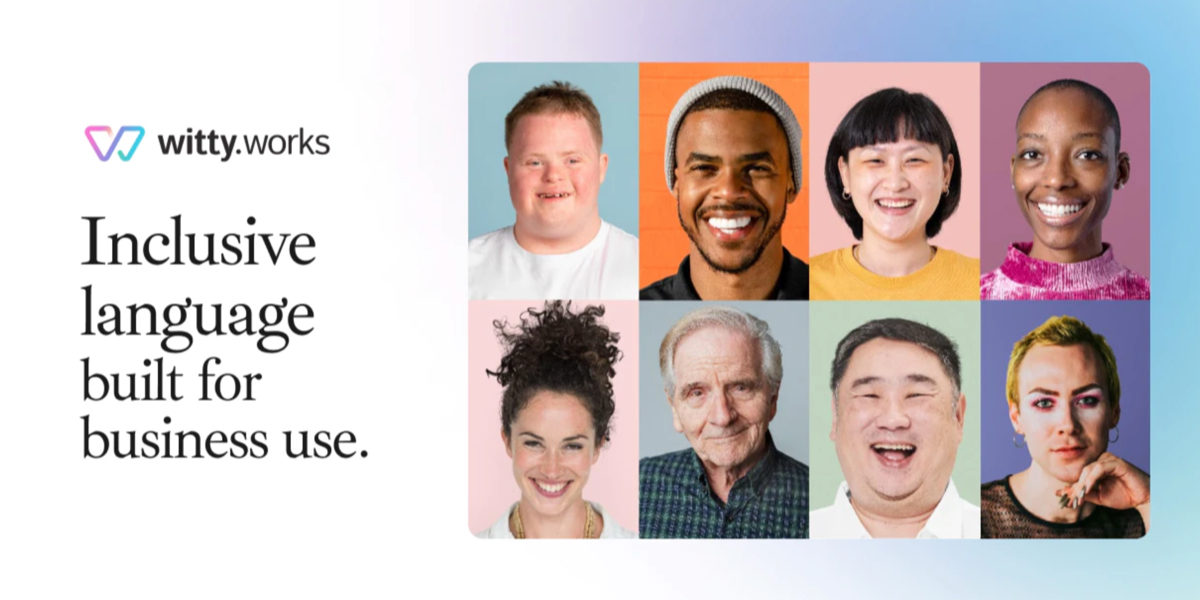Witty Is Not the Answer — or at Least Not the Only One
At the LMA 2023 annual conference last spring, we heard a lot of buzz about an artificial intelligence app called Witty that could be the answer to the DEI challenges law firm marketers currently face.
Yes, you read that correctly. And yes, we were confused too.
Over the past few months, we’ve been keeping an eye on Witty and digging a little deeper into what the tool promises to do, how law firms and other companies are using it and what else an organization needs to have in place to ensure its communications are actually fully inclusive.
Witty calls itself “the most effective DEI tool” that can help an organization “operationalize inclusion with ease,” increasing productivity, improving employee retention and increasing a sense of belonging. These are lofty promises for a tool that essentially scans content — newsletters, emails, speeches, website text, client alerts and internal communications — and uses AI to spot potentially problematic or offensive phrases and suggest alternatives.
Some examples from Witty’s site include:
- Spotting the phrase “digital native” and suggesting “digitally skilled person” as an alternative, since “native” used this way is potentially offensive.
- Spotting request in a job ad that candidates should work well “under pressure” and suggesting “with deadlines looming” instead, since implying that your culture is high pressure may turn off candidates who prefer a more collaborative environment.
- Spotting a CEO’s use of “hysterical” in an email to employees about their reaction to performance reviews and suggesting “agitated” instead. (No explanation needed on that knuckleheaded move.)
If you believe that an organization becomes inclusive by successfully avoiding a “gotcha” scenario, in which a department or individual gets called out for innocently using an outdated term, then Witty really is the answer — to the problem you think you have. Unfortunately, that is also an indication that you need to develop a deeper understanding of what inclusion and diversity really mean, and why they are central to doing business in 2023.
In their defense, some marketing directors and other communicators are excited about this tool because they feel overwhelmed by the volume of content their teams are charged with creating; the pace at which they must produce, vet, and push out this content; and the high stakes around making an error. Wouldn’t it be nice, they are surely thinking, if we could feed all our content through an artificial brain that makes sure we don’t get in trouble?
But building organizational cultures where people feel welcome to bring their whole selves to work, where a diversity of backgrounds and perspectives is honored, and where everyone from the managing partner to the part-time administrative intern buys into and practices these values is painstaking work. And it’s about so much more than avoiding a slip of the tongue or key.
In the absence of this deeper work, Witty essentially becomes a misdirection tool, something that creates the appearance of an examined, progressive culture and misleads recruits and clients about what they will actually get from a relationship with you. In that scenario, use of the tool could actually backfire, making it almost worse than doing nothing at all to improve your DEI practices.
Without question, a tool like Witty can solve a very specific challenge in creating content that avoids offending someone. But neither it nor any other tech tool, AI or otherwise, can substitute for the complex and time-consuming work of changing the actual culture within organizations and between organizations and their clients and recruits. If you (or your bosses) want to “do” DEI faster or are hoping to find a shortcut around the messy and uncomfortable aspects of this work, that’s a sign it’s time to step back and reconnect with the purpose of it.
Looking to dig a little deeper on these questions, maybe through developing a firm values statement that actually means something, doing a better job writing about disability or learning how PR can support associates and partners from underrepresented backgrounds? Or maybe you just want your firm to stop using the word “diverse” the wrong way? Get in touch. Out of everything we do for clients, this is the work we are most passionate about.

